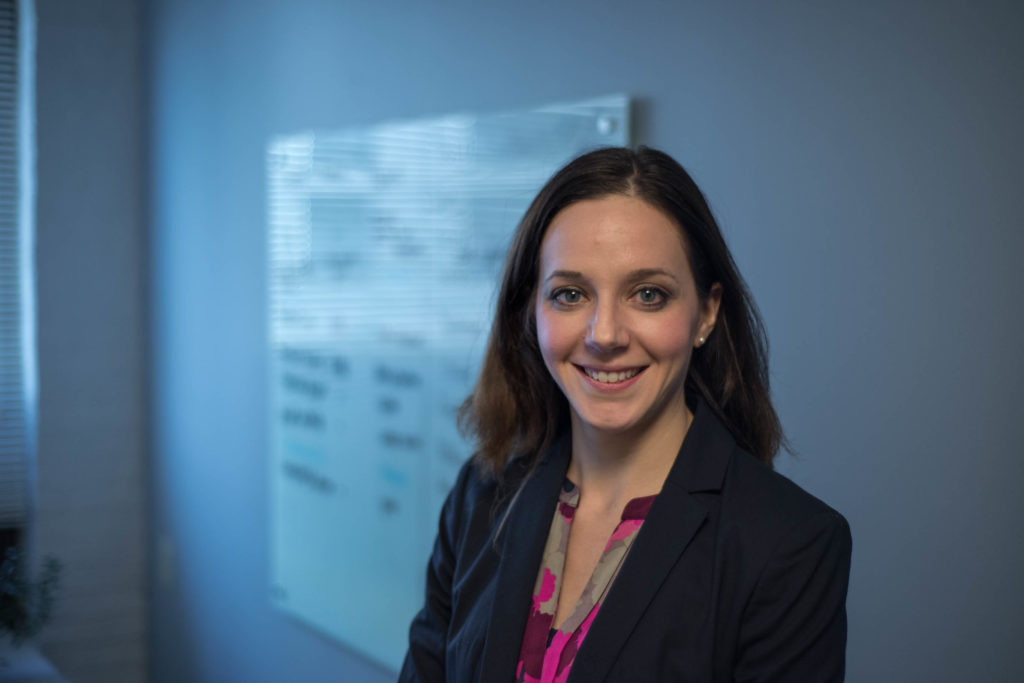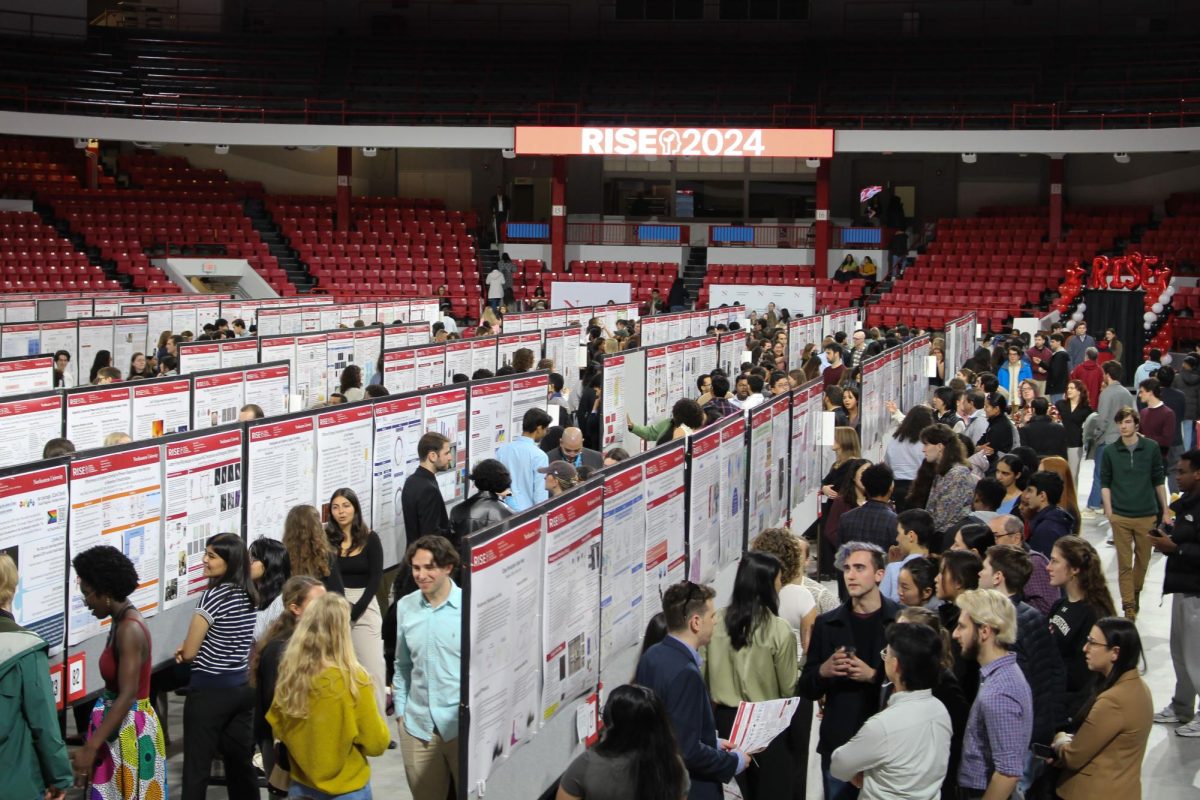By Jason Ritchey, news correspondent
To Brooke Foucault Welles, assistant professor of communication studies, social media is more than keeping in touch with friends.
For the two people who join LinkedIn every second and Facebook’s 1.28 billion active monthly users, Welles’ research focuses on how to best use social media to “activate people’s networks,” so that they can achieve professional goals.
“I’m not yet convinced that people are making the best possible use of their networks,” Welles said. “There are a lot of things that I think people dramatically underestimate in communication. For example, people like to be in networks where people are really close together, and it turns out that that is inversely correlated to your career success, whereas having a network where people don’t know each other and individuals come from diverse fields and backgrounds is positively correlated.”
Welles is working with Christo Wilson, assistant professor in the College of Computer and Information Science, and Ph.D. candidate Devin Gaffney, on the first step of her research – developing a methodology to measure and collect data.
“We know people make mistakes when they’re recalling their networks,” Welles said. “I suspect some people are just naturally better at networking than others, but measuring it isn’t so easy.”
Wilson, who is doing research of his own on Facebook’s “secret” news feed algorithm and its effects, said his partnership with Welles benefitted both his and her research.
“[Professor] Welles has some very specific hypotheses she wants to test, so I would say she developed the methodology,” he said. “[Gaffney and I] are developing the software that implements the methodology by collecting specific data and asking users specific questions designed by Professor Welles.”
However, Gaffney hopes that they will be able to grasp a better understanding of group dynamics.
“Often it’s not very clear what’s going on, which is frustrating, but every once in a while you’ll see something really cool pop out of these networks or get a really good hunch about how things work in a group,” Gaffney said.
The end result will likely have a variety of applications. Last fall, Welles received a grant from the United States Army, for whom the research might apply by helping members of the military and their families.
Science, technology, engineering and mathematics (STEM) fields could also see benefits from Welles research by connecting women and minorities with appropriate networks within the STEM community.
“What’s important to consider is that a lot of groups–women and sexual and racial minorities – that historically haven’t received enough attention are now getting it on reddit and Twitter and those sorts of things, and power is shifting a little,” Welles said.
Despite the benefits social networking offers across a range of areas and disciplines, Wilson notes the evolution and risks such platforms offer.
“Social networking is in a state of transition,” Wilson said. “For a while the hype was that social networking would connect everyone and we would share everything. But it’s clear that there are strong headwinds against that amount of sharing because of serious privacy concerns, as well as a perceived lack of intimacy and genuineness when everyone’s Facebook persona is a public performance.”
For Welles, however, the research is well-timed for this generation.
“I’m glad to see that younger people are finding social media a good platform to represent their identity as activists,” Welles said. “That said, the political intricacies are often overlooked in this hashtag advocacy; change doesn’t happen in a tweet cycle.”
Photo by Scotty Schenck


















